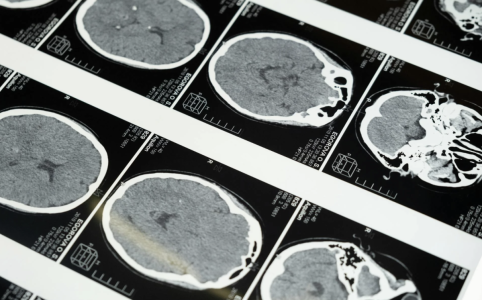Could this one overlooked issue raise your dementia risk? New study says yes
By
Veronica E.
- Replies 0
Disclaimer: The information provided in this article is for educational purposes only and is not intended as a substitute for professional medical advice, diagnosis, or treatment. Always consult your physician or other qualified healthcare providers with any questions you may have regarding a medical condition or before making any changes to your health regimen.
What if protecting your brain as you age didn’t require a new diet or medication—just paying attention to something many people ignore?
A new study shows that treating this common issue early may significantly lower your chances of developing dementia.
The surprising part? It’s not a pill, supplement, or crossword puzzle.
It’s hearing loss—and the findings suggest that addressing it earlier could keep your mind clearer for years to come.
Here’s what the researchers found and why it matters now more than ever.

In a major study published in JAMA Neurology, researchers followed nearly 3,000 adults as part of the ongoing Framingham Heart Study.
They discovered that people with hearing loss who used hearing aids before age 70 had a 61% lower risk of developing dementia compared to those who didn’t use hearing devices.
Even people without hearing loss had a 29% lower risk than those who ignored hearing problems.
These numbers aren’t just impressive—they’re a powerful reason to get your hearing checked regularly, especially before age 70.
Millions of older adults may be missing out on a simple, science-backed way to preserve memory and cognitive function.
It may not seem obvious at first, but hearing and brain health are deeply connected.
When the brain receives fewer auditory signals, it works harder to fill in the gaps.
Over time, this “cognitive overload” may contribute to memory loss, confusion, slower thinking, and even social withdrawal.
As Carolyn Bossinas, director of speech and audiology at Northwell Health Phelps Hospital, explains, “When we can’t hear well, our brains get less stimulation—and that lack of input can lead to cognitive decline.”
The study found that the biggest protective benefits came when people started using hearing aids before age 70.
Those who waited until after 70 still saw benefits—but the effect was not as strong.
Despite this, only about 17% of adults with moderate to severe hearing loss currently use hearing aids.
That means millions of Americans could be missing a key opportunity to reduce their risk of dementia—simply because they haven’t acted on their hearing loss.
Correcting hearing loss isn’t just about preventing cognitive decline.
It’s also about staying socially connected, enjoying daily life, and participating fully in conversations with friends and loved ones.
Dr. Gayatri Devi, a neurologist at Lenox Hill Hospital, emphasizes that hearing aids help people stay engaged.
“It’s a simple way not only to prevent dementia, but also to improve quality of life.”
When hearing becomes difficult, many people start avoiding social situations—especially in noisy places.
That isolation can lead to its own set of mental and emotional health challenges.
Not sure if it’s time for a hearing check? Look out for these common signs:
If you’ve noticed one or more of these, schedule a hearing test. The earlier you act, the easier it is to adjust to hearing aids—and benefit from them long-term.
Getting used to hearing aids takes time, but it’s worth the adjustment.
Here are a few tips to make the transition smoother:
Your audiologist can help fine-tune your hearing aids based on your lifestyle and comfort level.
Experts now estimate that up to 40% of dementia cases could be preventable by addressing modifiable risk factors like:
That means there’s a lot you can do to protect your cognitive health—even with small, manageable lifestyle changes.
Whether it's scheduling a hearing test or simply staying informed, small actions can have lasting impacts on your well-being.
Read next: The surprising reason more seniors are feeling lonely—no one’s talking about it

Have you or someone you love started using hearing aids? Did it make a difference in social life or memory? We’d love to hear your experiences, advice, or questions in the comments below. Sharing your story could help someone else take the first step toward better hearing—and better brain health!
What if protecting your brain as you age didn’t require a new diet or medication—just paying attention to something many people ignore?
A new study shows that treating this common issue early may significantly lower your chances of developing dementia.
The surprising part? It’s not a pill, supplement, or crossword puzzle.
It’s hearing loss—and the findings suggest that addressing it earlier could keep your mind clearer for years to come.
Here’s what the researchers found and why it matters now more than ever.

Taking small steps to care for your health today can make a big difference in the years ahead. Image Source: Pexels / cottonbro studio.
The surprising link between hearing and dementia
In a major study published in JAMA Neurology, researchers followed nearly 3,000 adults as part of the ongoing Framingham Heart Study.
They discovered that people with hearing loss who used hearing aids before age 70 had a 61% lower risk of developing dementia compared to those who didn’t use hearing devices.
Even people without hearing loss had a 29% lower risk than those who ignored hearing problems.
These numbers aren’t just impressive—they’re a powerful reason to get your hearing checked regularly, especially before age 70.
Millions of older adults may be missing out on a simple, science-backed way to preserve memory and cognitive function.
Also read: Is this breakthrough drug the key to preventing—even reversing—dementia? Here’s what doctors say
Why untreated hearing loss affects the brain
It may not seem obvious at first, but hearing and brain health are deeply connected.
When the brain receives fewer auditory signals, it works harder to fill in the gaps.
Over time, this “cognitive overload” may contribute to memory loss, confusion, slower thinking, and even social withdrawal.
As Carolyn Bossinas, director of speech and audiology at Northwell Health Phelps Hospital, explains, “When we can’t hear well, our brains get less stimulation—and that lack of input can lead to cognitive decline.”
Also read: This overlooked symptom might be an early sign of dementia, experts say
Early action makes a big difference
The study found that the biggest protective benefits came when people started using hearing aids before age 70.
Those who waited until after 70 still saw benefits—but the effect was not as strong.
Despite this, only about 17% of adults with moderate to severe hearing loss currently use hearing aids.
That means millions of Americans could be missing a key opportunity to reduce their risk of dementia—simply because they haven’t acted on their hearing loss.
Also read: Are these strange sensory changes a clue to Dementia? Experts say you shouldn’t ignore them
Why it’s about more than just brain health
Correcting hearing loss isn’t just about preventing cognitive decline.
It’s also about staying socially connected, enjoying daily life, and participating fully in conversations with friends and loved ones.
Dr. Gayatri Devi, a neurologist at Lenox Hill Hospital, emphasizes that hearing aids help people stay engaged.
“It’s a simple way not only to prevent dementia, but also to improve quality of life.”
When hearing becomes difficult, many people start avoiding social situations—especially in noisy places.
That isolation can lead to its own set of mental and emotional health challenges.
Also read: Is your neighborhood at risk? See the dementia hotspots you need to know about!
How to spot early hearing loss
Not sure if it’s time for a hearing check? Look out for these common signs:
- Difficulty hearing in restaurants or group conversations
- Turning up the TV louder than others prefer
- Frequently asking people to repeat themselves
- Feeling like others mumble or speak unclearly
If you’ve noticed one or more of these, schedule a hearing test. The earlier you act, the easier it is to adjust to hearing aids—and benefit from them long-term.
Also read: Are you ignoring this common leg issue? It could secretly raise your dementia risk by 25%
Tips for hearing aid users
Getting used to hearing aids takes time, but it’s worth the adjustment.
Here are a few tips to make the transition smoother:
- Keep your devices dry and clean
- Recharge or replace batteries regularly
- Clean them as directed by your audiologist
- Do weekly listening checks to ensure proper function
Your audiologist can help fine-tune your hearing aids based on your lifestyle and comfort level.
Also read: Are antidepressants affecting dementia risk? What you need to know
Hearing loss is one of many preventable dementia risks
Experts now estimate that up to 40% of dementia cases could be preventable by addressing modifiable risk factors like:
- Untreated hearing loss
- High blood pressure
- Smoking
- Social isolation
- Lack of mental stimulation
That means there’s a lot you can do to protect your cognitive health—even with small, manageable lifestyle changes.
Prioritizing your hearing health may be one of the most overlooked—but effective—ways to support your brain as you age.Whether it's scheduling a hearing test or simply staying informed, small actions can have lasting impacts on your well-being.
Read next: The surprising reason more seniors are feeling lonely—no one’s talking about it
Key Takeaways
- New research shows that using hearing aids before age 70 may cut the risk of dementia by more than 60% for those with hearing loss.
- Only 17% of people with moderate to severe hearing loss currently use hearing aids, despite their proven cognitive benefits.
- Untreated hearing loss reduces brain stimulation and may contribute to memory issues, social withdrawal, and faster cognitive decline.
- Experts recommend regular hearing checks and early intervention to help protect brain health and maintain social engagement as we age.
Have you or someone you love started using hearing aids? Did it make a difference in social life or memory? We’d love to hear your experiences, advice, or questions in the comments below. Sharing your story could help someone else take the first step toward better hearing—and better brain health!






